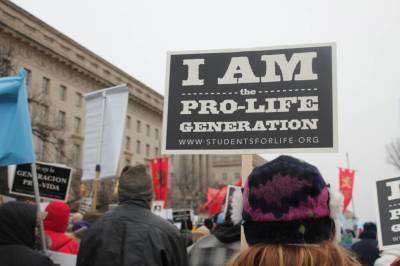Indiana Becomes Second State to Protect Down Syndrome Babies From Abortion

The Indiana state legislature has passed a new pro-life law that protects babies diagnosed with Down syndrome from abortion.
Gov. Mike Pence signed House Enrolled Act 1337 into law Thursday, which also bans abortions on the basis of race, ancestry, or gender.
In a statement released yesterday, the governor described HEA 1337 as "a comprehensive pro-life measure that affirms the value of all human life."
"I believe that a society can be judged by how it deals with its most vulnerable — the aged, the infirm, the disabled and the unborn," stated Pence.

"By enacting this legislation, we take an important step in protecting the unborn, while still providing an exception for the life of the mother. I sign this legislation with a prayer that God would continue to bless these precious children, mothers and families."
Introduced in January by Indiana House Representative Casey Cox, HEA 1337 prohibits abortions meant to be performed solely because a baby has a diagnosed illness or certain biological characteristics.
"A person may not intentionally perform or attempt to perform an abortion before the earlier of viability of the fetus or 20 weeks of postfertilization age if the person knows that the pregnant woman is seeking the abortion solely because the fetus has been diagnosed with Down syndrome or has a potential," reads HEA 1337 in part.
"A person may not intentionally perform or attempt to perform an abortion before the earlier of viability of the fetus or twenty (20) weeks of postfertilization age if the person knows that the pregnant woman is seeking the abortion solely because of the race, color, national origin, or ancestry of the fetus."
HEA 1337 also outlines rules for disposing of an aborted baby, including the necessary paperwork and specifying either burial or cremation.
"An abortion clinic or health care facility having possession of an aborted fetus shall provide for the final disposition of the aborted fetus. The burial transit permit requirements of IC 16-37-3 apply to the final disposition of an aborted fetus, which must be interred or cremated," continued HEA 1337.
"The local health officer shall issue a permit for the disposition of the aborted fetus to the person in charge of interment for the interment of the aborted fetus. A certificate of stillbirth is not required to be issued for an aborted fetus with a gestational age of less than 20 weeks of age."
HEA 1337's passage was denounced by pro-choice groups that viewed the bill as being an attack on a woman's right to abort her baby for any reason.
"Now Indiana's legislature has passed a bill that forces women to give birth if a doctor has detected a fetal abnormality," stated Planned Parenthood Advocates of Indiana and Kentucky.
"Which, yes, would mean that a pregnant woman who contracts Zika would lose her right to abortion, while a woman with a healthy pregnancy would retain her right to say no to giving birth."
Indiana is not the first state to enact a ban on abortions based on a baby being diagnosed with Down syndrome.
Nearly three years before Pence signed HEA 1337 into law, North Dakota enacted House Bill 1305, which also banned abortions based on sex or genetic abnormality.






















